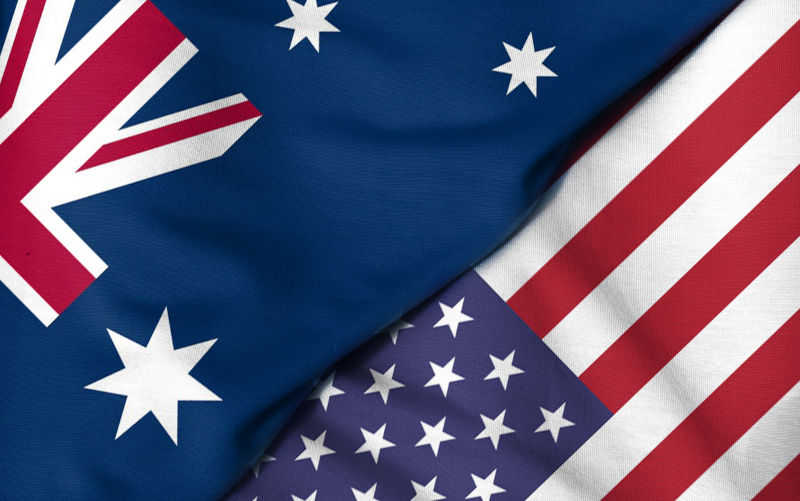I don’t think it’s too controversial or anti-American to suggest that our long-term strategic partner has been having a few issues lately. We may have grown used to people in the US shooting each other in large numbers, taking too many drugs, and generally over-indulging in self-destructive and planet destroying ways, but we still expected them to be democratic.
Recent events suggest there is no certainty about that. Long before the sacking of Kevin McCarthy, America was becoming politically dysfunctional. Although Donald Trump may have been more of symptom than a cause of this, the fact that he could become President and institutionalise his prejudices and preferences is a pretty telling indicator of long-term national decline.
And we may not have seen the last – or the worst – of him either. Trump was just as a surprised as everyone else when he was elected. Little wonder he had no idea what to do when he got the job. To be fair, he did stack the Supreme court with ideological allies while he was in power, which helps to explain the collapse in public support for the judiciary.
If Trump gets in again, which he well might, this time he – or more accurately – his coterie of advisors have been ‘systematically preparing to march into office and bring a new army, aligned, trained, and essentially weaponised conservatives ready to do battle against the deep state.’ Significantly, there is an expectation of ‘greater spending and collaboration by Taiwan and allies in the Asia–Pacific like Japan and Australia to create a collective defence model.’
No doubt some of our strategic elites will still be fretting about El Presidente cancelling the nuclear submarine project if the mood takes him. Don’t worry. Trump may be a ‘fucking moron’, as his former Secretary of State colourfully claimed, but he’s clearly good at enriching himself. I think he’ll be able to recognise a sucker when he sees one. Who else would pay $360 billion for subs that are obsolete, over budget, mechanically unreliable and won’t deter anyone – in the unlikely event that they ever turn up?
But if Trump starts to abandon America’s other long serving, but stingier allies in Europe and Asia, what will our besotted leaders do? Given all the schmoozing at the AUSMIN talks, it’s not surprising their heads are easily turned. There’s nothing quite like seeming to be taken seriously by powerful people. But going to the White House to meet a bonafide fascist, albeit one by instinct rather than intellect, won’t be easy to spin: the US is supposed to be protecting us from them, after all.
I’ve been assured by one of Australia’s most influential security specialists that Trump’s possible return is just a hypothetical and not worth worrying about until it happens. But it’s more likely than the equally hypothetical possibility of China invading Taiwan, which we’re going to spend an awful lot of money – and lives, if necessary – helping to prevent. Fingers crossed.
Some may argue that an outbreak of patriotic finger-crossing might be just as effective and quite a bit cheaper than the subs when it comes to keeping Australia safe. It would certainly be better for the environment, although we seem to have given up on that anyway. Did I mention that the Trump team wants to take an axe to America’s already inadequate environmental policies? At least that will give the Albanese government an excuse not to make economically and politically costly gestures.
But perhaps geriatric Joe Biden will still be with us, win a surprising victory, and put the world in order. I suspect that not even the Alliance’s most unabashed enthusiasts are expecting the 1950s to come back. Many Trump supporters do, though, with all of the nationalistic, supremacist cultural baggage that comes with.
It’s easy to be dismissive of the mainly white, working-class Trump supporters Hillary Clinton infamously described as a ‘basket of deplorables’. But it’s not really their fault that many good blue-collar jobs disappeared overseas, and wealth distribution has become grotesquely and unfairly skewed in America– toward people like Trump, in fact. It’s not their fault they’ve been badly educated, either.
It’s possible that the US may cease to be a democracy, despite its self-appointed historical mission as the lodestar of good governance and international leadership. The implications for allies are – or should be – profound. As Keynes famously pointed out, if the facts change, it’s best to change your mind.
We’ve been in a monogamous strategic relationship with the US for about 80 years, but despite the fact that our partner seems to be having some sort of collective nervous breakdown, those who make policy in this country don’t seem to have noticed.
Gwyneth Paltrow may not be the most obvious source of foreign policy advice, but perhaps a bit of ‘conscious uncoupling’ is just what we need. Surely, we can manage to be ‘respectful, compassionate, and mindful of both parties’? Our American allies might thank us for it in the long run – if there is one, of course.
Mark Beeson is an Adjunct Professor at the University of Technology Sydney and Griffith University. His latest book is Environmental Anarchy? International Relations Theory and Practice in the Anthropocene, (Bristol University Press: 2021) He has also written Environmental Populism: The Politics of Survival; in the Anthropocene Palgrave 2019

